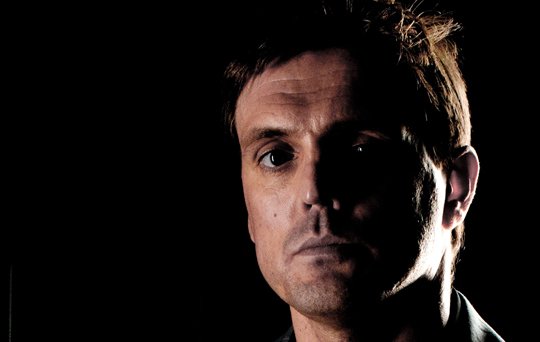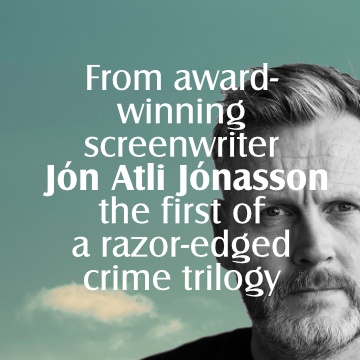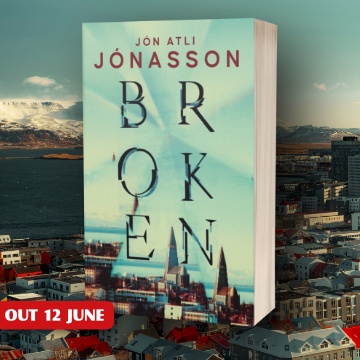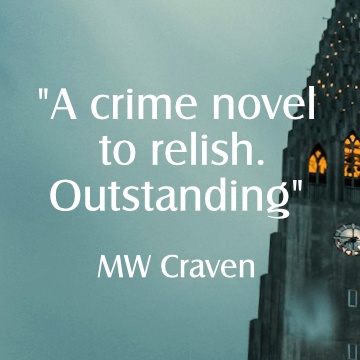 If you like your crime fiction gritty and lean Tony Black’s your man. With two highly successful series under his belt – the Gus Dury books and a brace of police procedurals featuring DI Rob Brennan – Black has cemented his position among the forefront of the Tartan Noir pack. This month sees the release of The Storm Without, a standalone novella originally written in serial form for The Ayrshire Post. It is pure Black – all decay, corruption and brutality. Tony was kind enough to join me for an interview…
If you like your crime fiction gritty and lean Tony Black’s your man. With two highly successful series under his belt – the Gus Dury books and a brace of police procedurals featuring DI Rob Brennan – Black has cemented his position among the forefront of the Tartan Noir pack. This month sees the release of The Storm Without, a standalone novella originally written in serial form for The Ayrshire Post. It is pure Black – all decay, corruption and brutality. Tony was kind enough to join me for an interview…
Can you tell the readers a bit about The Storm Without?
You want the elevator pitch? Ex-cop Doug Michie leaves a wrecked marriage and career behind after a harrowing stint in the RUC to return to his hometown of Ayr in the heart of Burns Country. Once there he meets an old flame, Lyn, whose son has been arrested on a murder charge. As Doug looks into the case he discovers his life can indeed get a whole lot worse. Only the philosophical musings of Rabbie Burns keep him in the neighbourhood of ‘together’.
Maybe the trailer will do a better job…
You’ve moved out of your regular Edinburgh stomping ground with this one, what did Alloway give you as a location?
I grew up in Alloway – birthplace of one Robert Burns – and this was the first time I’d been back in about 20 years, so it was a case of all the old perceptions being replaced with brand new ones. I was literally scooping up material day-to-day and I knew this was gold to a writer. Funnily enough, though, when I left Dublin I was planning to go back to Edinburgh but another Ayrshire writer, William McIlvanney, told me going home would be great for my writing. He wasn’t wrong, but then he never is!
There are snatches of Burns strung through the book. Do you see a sympathy between the concerns of his work and the crime genre?
I do, he’s all about the little guy coming up against The Man. There’s a great line from Burns: ‘a man’s a man fir aw that’ that seems to sum this up for me. When you look at crime fiction, Noir especially, something like David Goodis’s The Moon in the Gutter just reeks of this sentiment, y’know, that we’re all screwed no matter what we do but there’s some values we share that can’t be measured in dollars and cents.
Your protagonists tend towards introspection and self-destruction, why does the lone wolf appeal to you so much?
Hmm… dunno. I’ve never been much of a team player, I suppose, and the people I’ve tended to admire are the ones who go out there on their own and achieve great things against the odds. Like George Best, Richard Burton, Jim Morrison… great talents but ultimately destroyed by very human weaknesses. The contradiction appeals to me from a characterisation point of view – the fact that they can be multi-faceted and still function.
How did you find the experience of writing a serialisation?
Absolutely hellish. I tend to batter through the work quickly to get a first draft down but this was a real stop-start process. I wrote it week to week – 1000 words a week, not a great amount but it meant putting the work to bed and then waking it up a week later. If I wanted to keep it relevant for readers, each instalment that is, then I needed to comment on the current goings on. If I was to do another serialisation, I’d write the whole thing in a oner and drip-feed it to the publication. Is that cheating?
Your blog Pulp Pusher has hosted some big names in e-publishing. Where do you sit on the traditional versus digital debate?
I don’t have a strict view either way. I have frustrations with traditional publishing and at the same time I see people who have no interest in writing, but would quite like to have a book out, rushing at eBooks and clearly detracting from the great digital content that is out there. I suppose what I want to see is good books being produced and how that happens doesn’t bother me. It’s clearly a period of chaos at the moment but I think that will settle down and what we will have then will be better than what we have had up until now: likely more indie presses, greater experimentation, less grief for writers.
What’s coming up next for you?
Next cab off the rank for me is RIP Robbie Silva, a heist novella set in Edinburgh and quite possibly the most fun I’ve had at this lark. My editor, Alan Guthrie no less, raved about this book after reading so I’m thinking I must have done something right there.









Great interview. Great writer.
Cracking stuff.